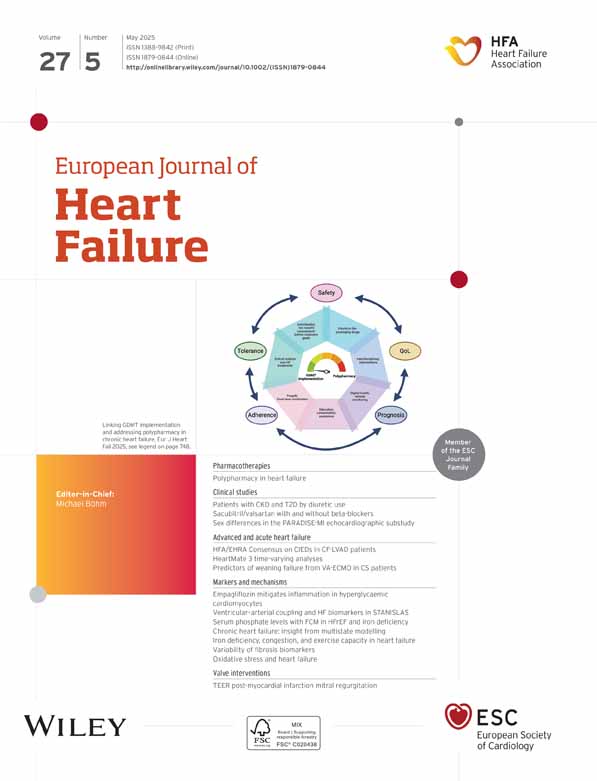High variability in assays of blood markers of collagen turnover in cardiovascular disease: Implications for research and clinical practice
Abstract
Aims
Fibrosis is a common feature of many chronic diseases, including heart failure, which can have deleterious effects on cardiac structure and function that are associated with adverse outcomes. By-products of collagen synthesis and degradation, such as carboxy- and amino-terminal pro- or telo-peptides of collagen type I and III (PICP, PINP, PIIINP, and CITP) have been extensively investigated as markers of fibrosis. Although the majority of studies report on the reproducibility of their assay results, there is no a comparison of biomarker assays across studies. Therefore, we conducted a systematic review adhering to PRISMA guidelines.
Methods and results
The search terms employed in Medline were: ‘collagen AND cardiac’ or ‘collagen AND heart’. This query yielded a total of 1049 articles. Thereafter, specific search criteria were applied: (i) original English-language papers; (ii) human studies; (iii) in-vivo investigations; and (iv) blood/serum/plasma samples. Overall, 89 studies were identified (42 on PIIINP, 32 on PICP, 29 on CITP, and 17 on PINP). The range of reported values for PIIINP was between 0.06 to 11 800 μg/l; for PICP 0.006 to 1265 μg/l; for CITP 0.3 to 5450 μg/l; for PINP 0.15 to 80 μg/l. Extreme variations in values for fibrosis biomarkers were observed across studies, especially when different assays were used, but also with the same assays.
Conclusions
Our findings show that it is challenging to ascertain normal ranges or compare studies for the measurement of fibrosis biomarkers. Given the potential implications for clinical practice and current lack of awareness of these issues, this subject warrants comprehensive acknowledgement and understanding.




